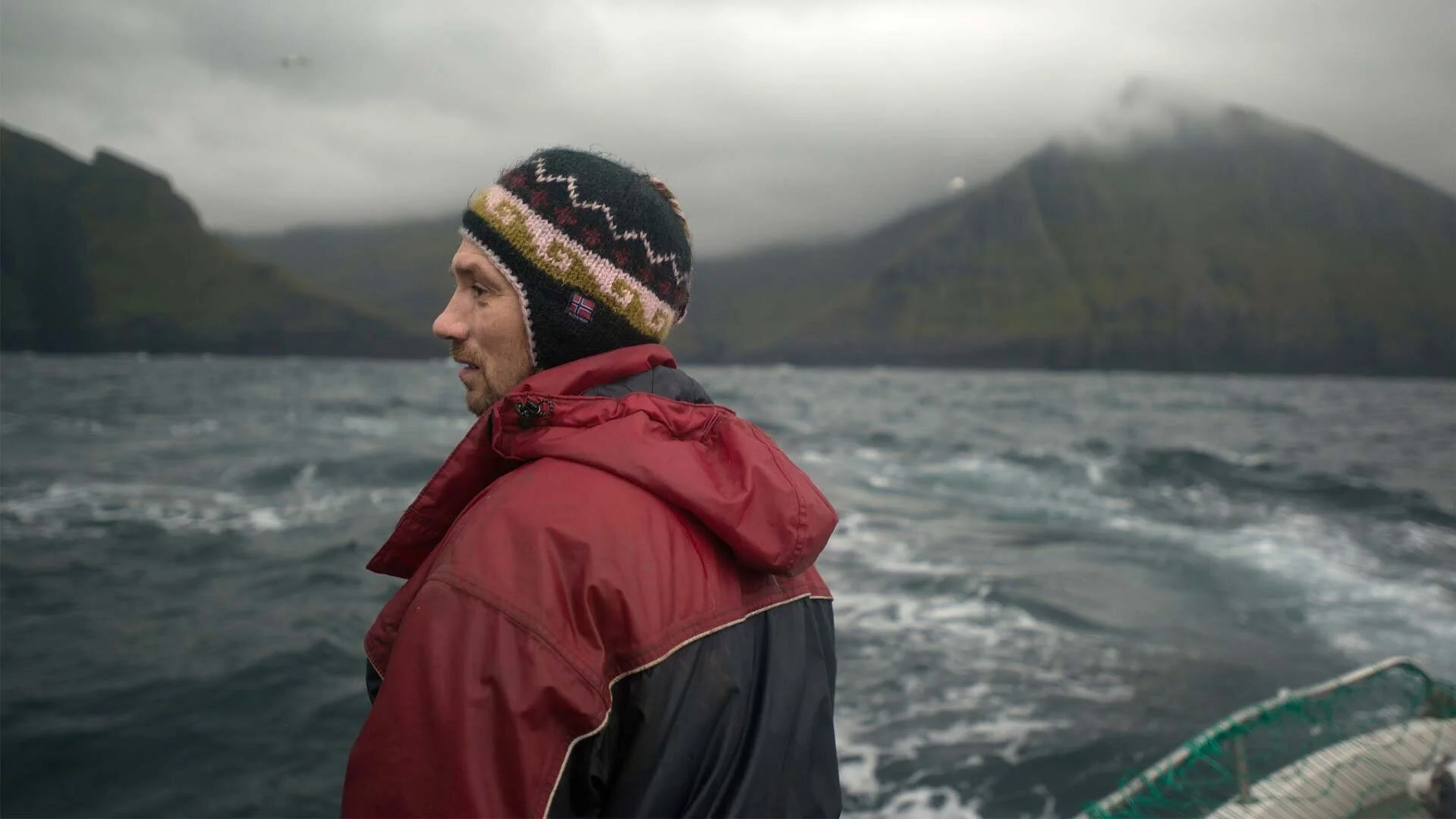The Islands and the Whales
Life in the Faroe Islands observed by a talented Scottish filmmaker.
Situated between the Norwegian Sea and the North Atlantic Ocean the archipelago known as the Faroe Islands should not be confused with the single island of Faro located in the Baltic just off the Swedish coast. However, when watching Mike Day’s new film about the Faroes I could not help but be reminded of Ingmar Bergman’s two films made in the 1970s recording the conditions of life on Faro. Both places being remote, those living in them must surely sense the limitations and be anxious over the possibility of the community falling into decline especially in the case of Faro. But, whereas Bergman was himself a resident, Day is an outsider from Scotland looking at life in the Faroe Islands as he found it and in his case concentrating particularly on whaling. More than just an important part of life in the Faroes, whaling supplies the staple food, food that is favoured with what is almost a nationalistic fervour. Yet it is from what they eat that the islanders today face their gravest threat because the pilot whales that provide this food now exist in waters polluted by the mercury levels that have been a concern ever since they became a subject of local study in 1986.
The Islands and the Whales eschews a commentary as such but we hear the views of locals including Bárdur Isaksen and his wife (a young couple with three children), elderly residents and, significantly, Dr Pál Weihe, a Public Health official who sees it as his duty to warn of the dangers to health of continuing to eat whale meat as before but understands the reluctance of many to give up this tradition. Alongside this issue, the film touches on other forms of pollution relevant to life here and on the question of whale hunting itself. We see protestors arrive to denounce it while even one of the locals is heard asking if such hunting has gone too far since killing for food (sea birds as well as whales) has now reached a point when more attention should be paid to the need to limit what is allowed in order to ensure that species do not die out.
This documentary feature is admirably made and Day, photographer as well as director, captures the stark beauty of the setting. He uses music well too and the skilled editing keeps the film moving forward as it touches on the key issues and develops them while also capturing something of local beliefs and legends. Day is keen not to preach and he may be taken to task over that. Given the brutality inherent in all of the hunting, he may be criticised for refusing to take sides and not least by those who deplore whaling. But his film never hides the barbarity involved and to invite audiences to draw their own conclusions, both on this and on the health question, is no drawback since all viewpoints are represented. This is a film that observes in preference to arguing a case and in so doing it displays considerable skill.
MANSEL STIMPSON
Featuring Bárdur Isaksen, Pál Weihe, Dr Jens-Kjeld Jensen, Pamela Anderson.
Dir Mike Day, Pro Mike Day, Ph Mike Day, Ed Mary Lampson, Nicola Halova, Mike Day, Claire Ferguson and David Charap, Music Antony Partos and Mike Sheridan.
Intrepid Cinema/Danish Film Institute/Creative Scotland-Cosmic Cat Film.
81 mins. UK/USA/Sweden/Denmark. 2016. Rel: 29 March 2018. Cert. 12A.


